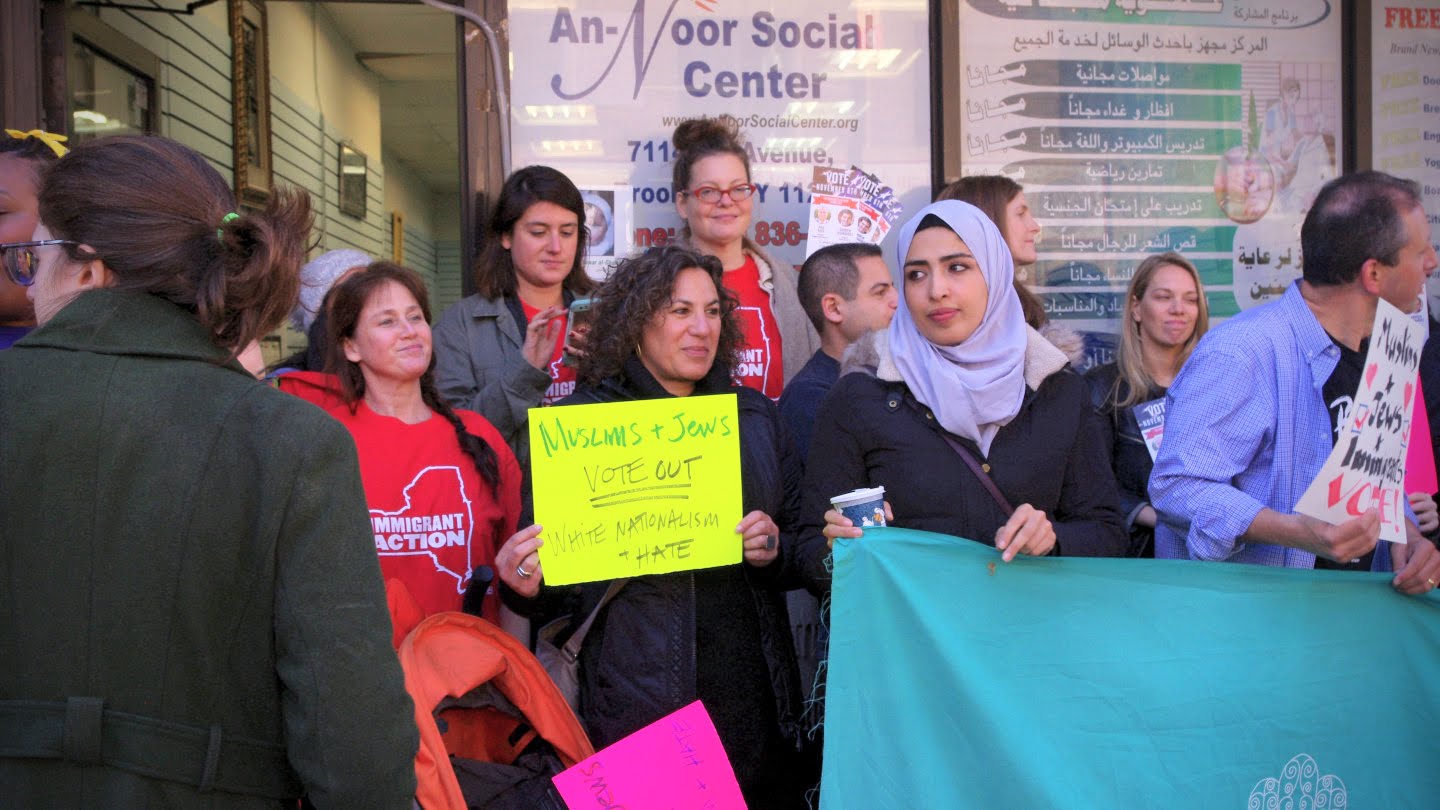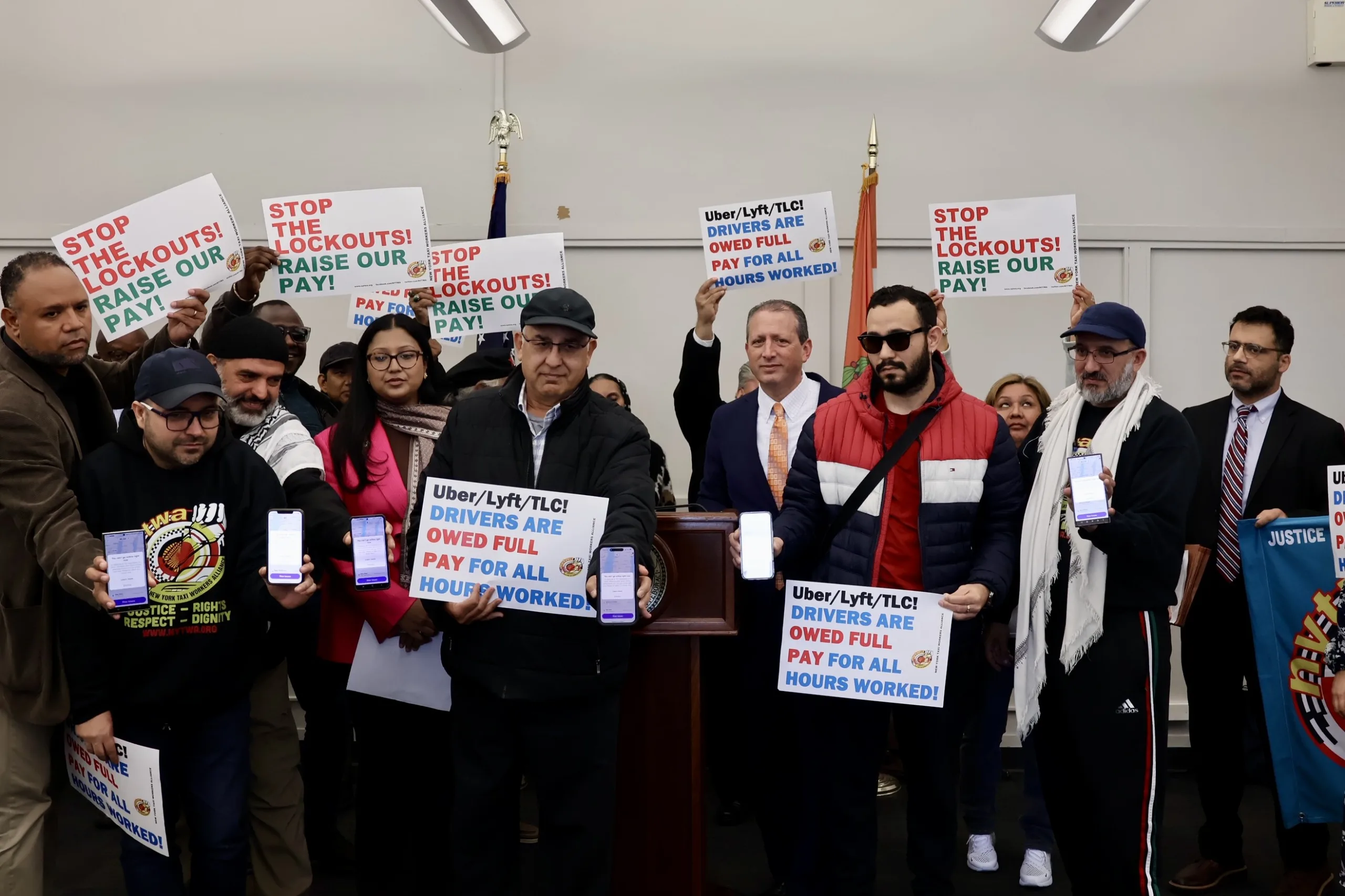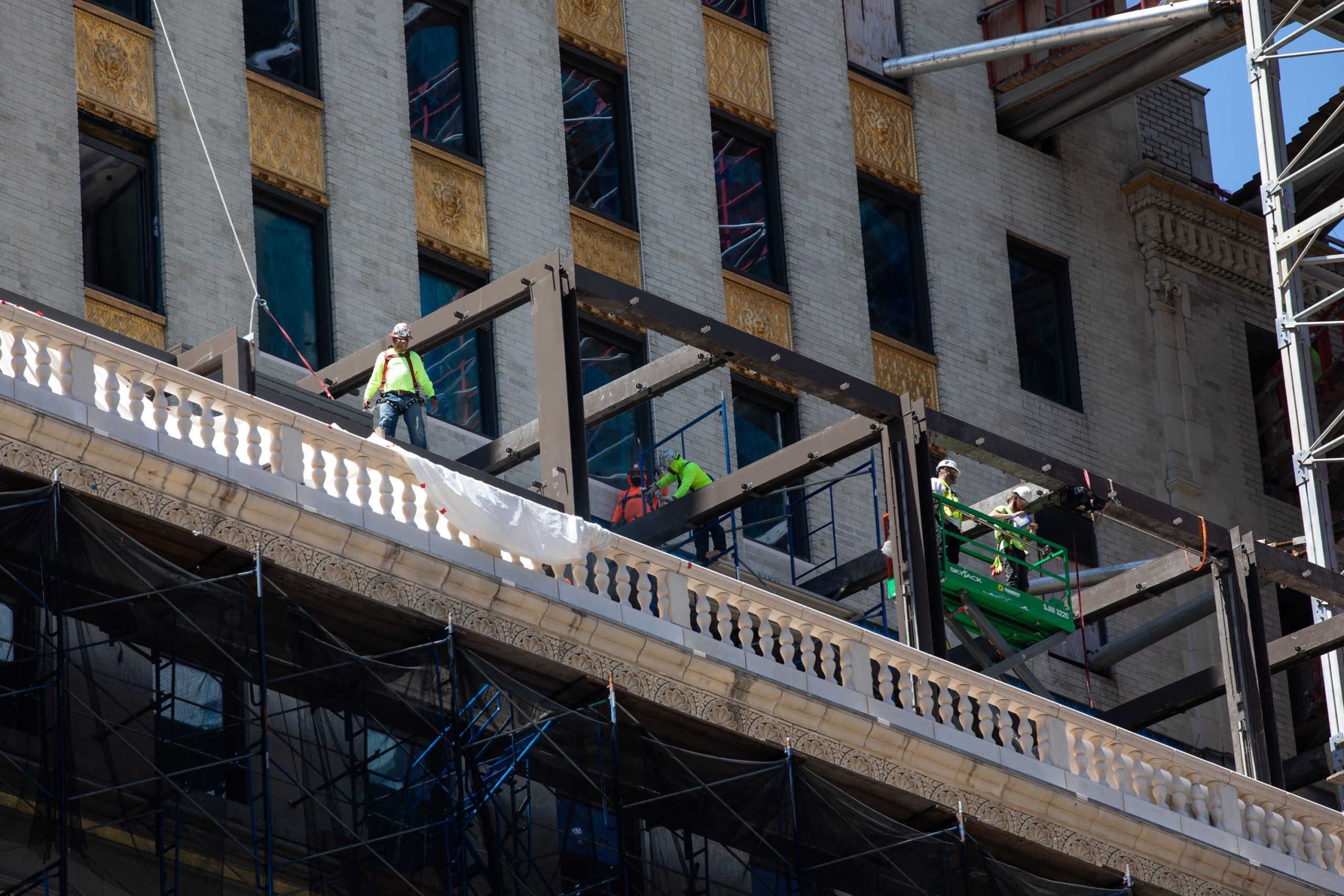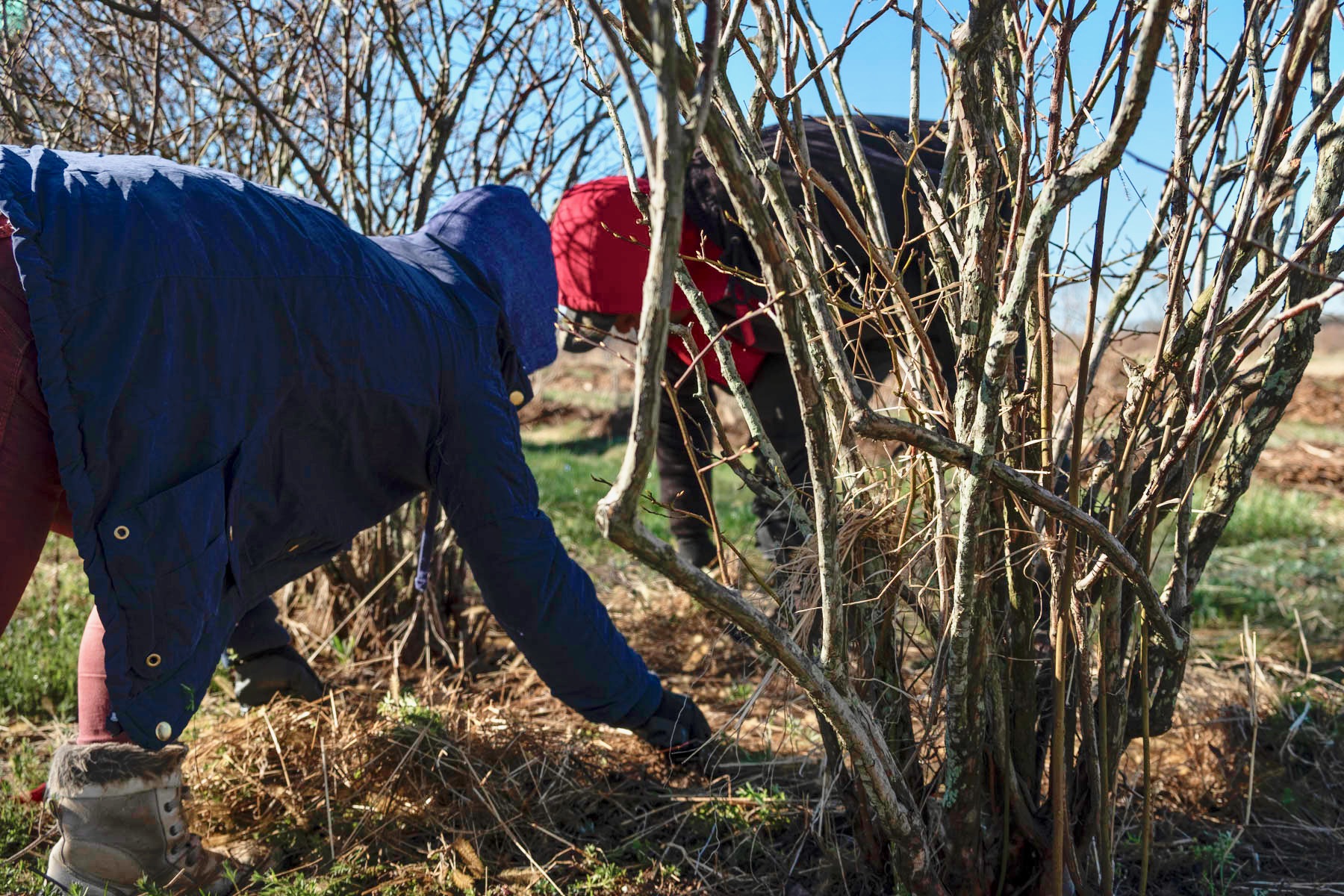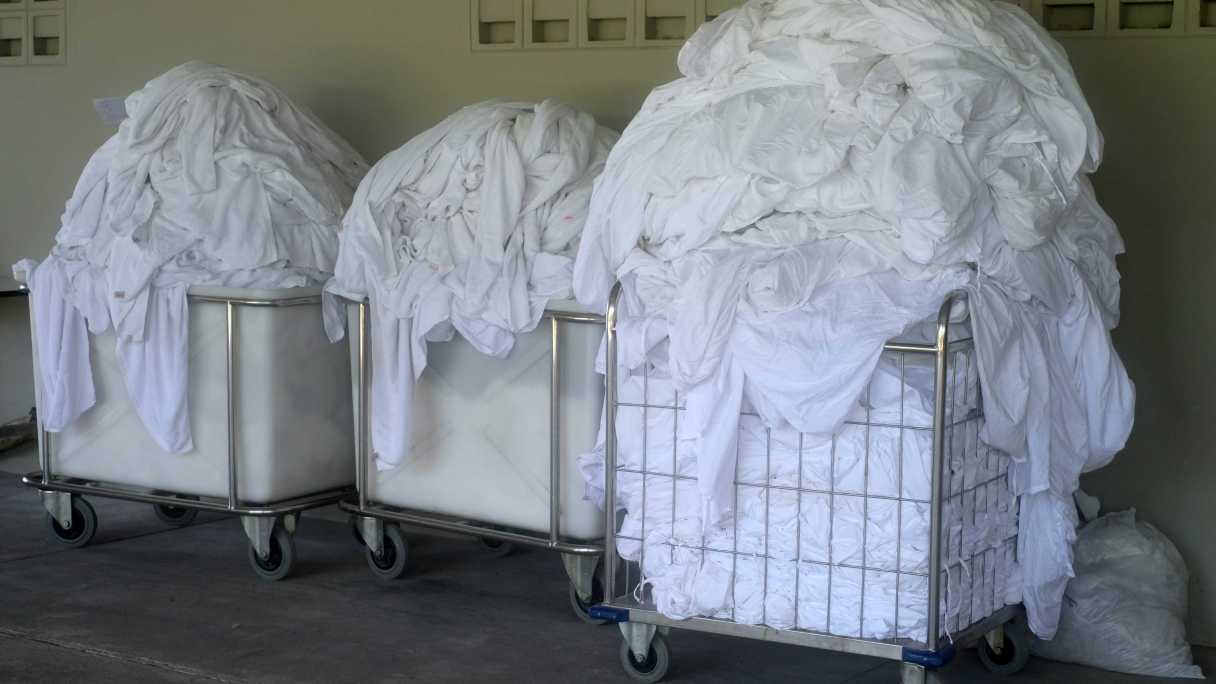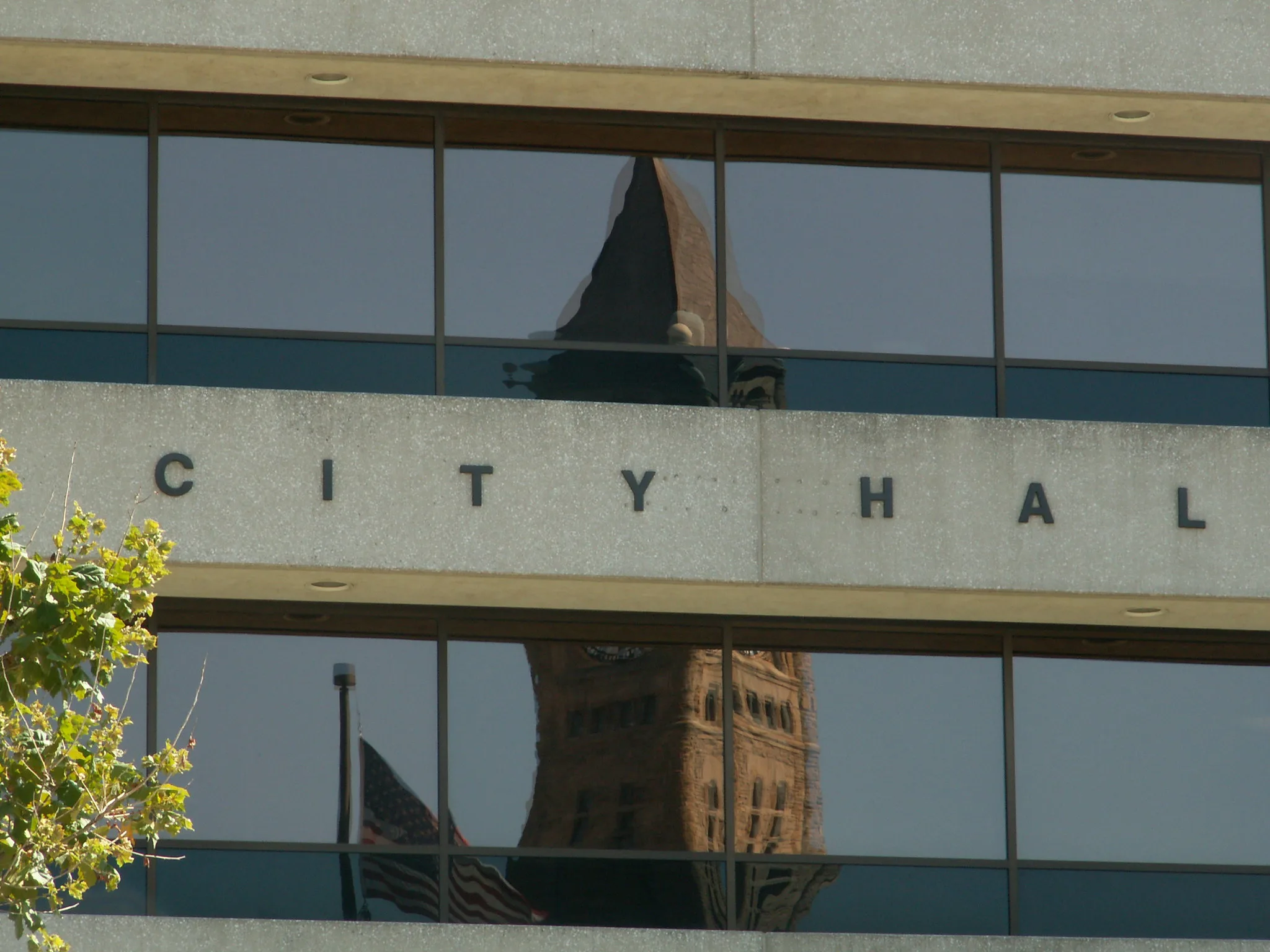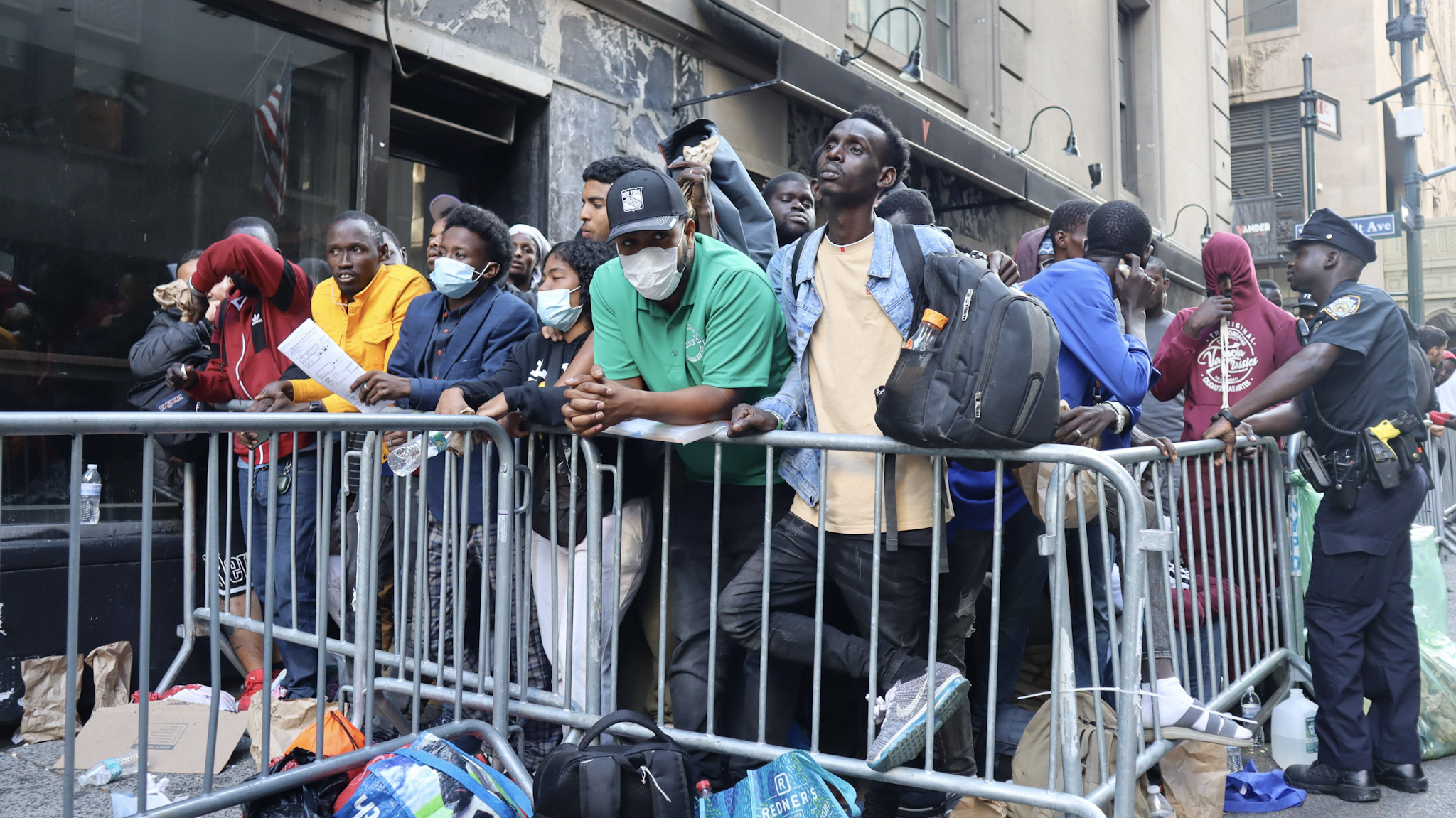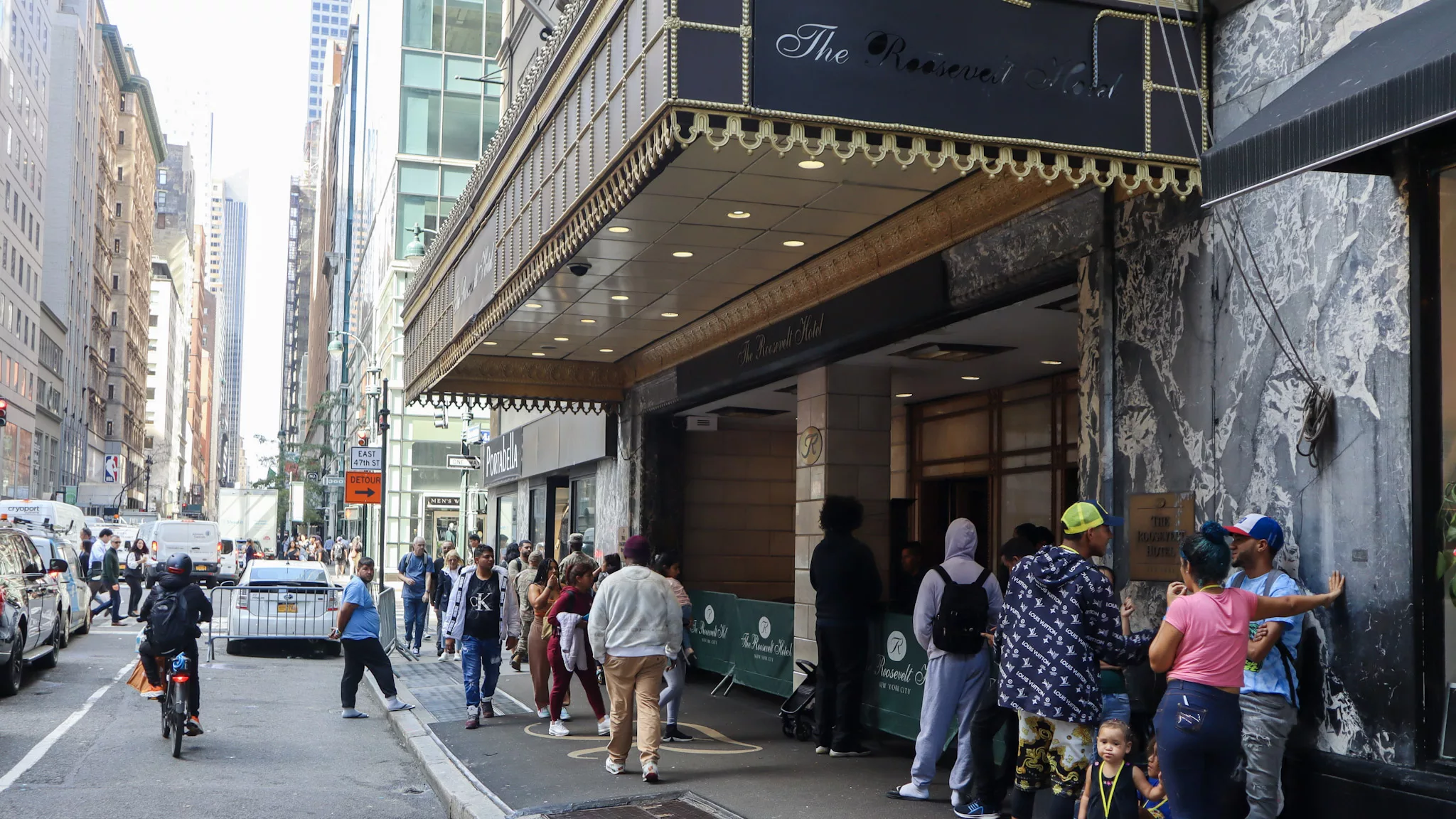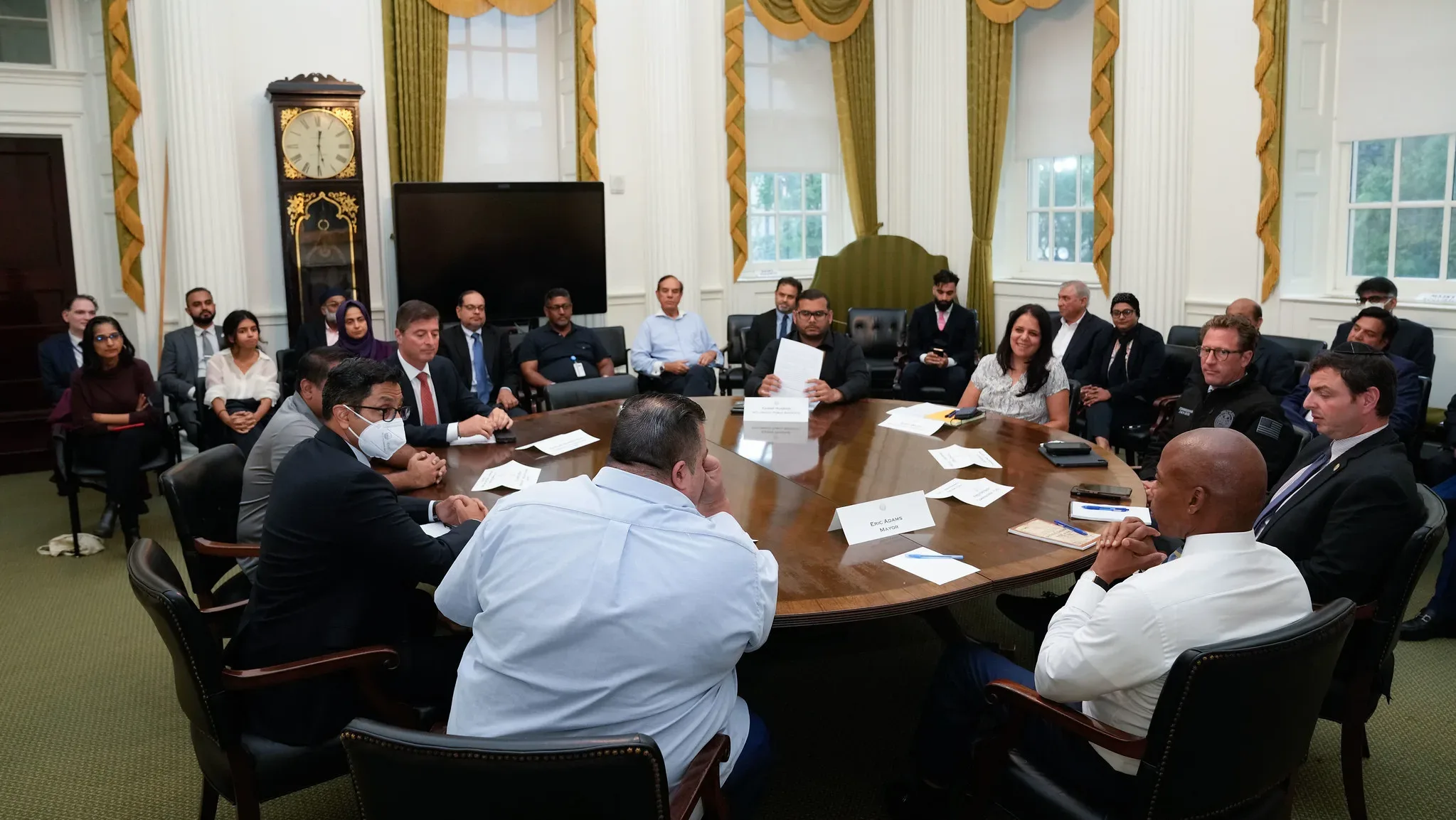Southern Brooklyn and Staten Island are home to two of New York’s most-watched elections this year, one state, one federal. In both, immigrant organizers are hoping that changing demographics will gain upset victories for Democratic candidates and strike a blow against the policies of president Donald Trump.
In Bay Ridge and along the southwest shore of Brooklyn, Republican incumbent state Senator Marty Golden and Democratic challenger Andrew Gounardes are battling over a seat that could determine control of the New York state Senate. In Staten Island and parts of southern Brooklyn, where New York’s 11th congressional district lies, Republican Dan Donovan and Democratic Max Rose are fighting for a seat in the U.S. House of Representatives.
The Democratic push for both races is centered in Bay Ridge, the Brooklyn neighborhood now home to the biggest concentration of Arabic speakers in the borough. Traditionally seen as a white enclave in the mold of Saturday Night Fever, the area has changed dramatically in recent years due to an influx of Arab, Hispanic and Asian immigrants. Democratic organizers who have worked the area for years are confident that this will be the moment their efforts finally persuade this group of immigrants to go to the polls and cast their ballots for the Democratic ticket. Their confidence is underscored by last year’s high-profile candidacy of Palestinian Lutheran minister Khader El-Yateem (Father K) in the Democratic primary for Bay Ridge’s City Council seat.
“One of the things that we hear, and we’ve heard it over this election cycle, is that the Arab vote, the Muslim vote, the brown vote, it doesn’t exist, your people don’t go to the polls,” Faiza Ali, a founding member and vice-president of the Muslim Democratic Club of New York City (MDCNY), told Documented while sitting in the An-Noor Social Center before a rally and get out the vote effort for Gounardes and Rose. “What we learned with Father K is that when there’s a candidate that’s from the community, who you see yourself in, that engages the community, the community goes out and votes.”
While Father K lost, his second-place finish to Justin Brannan illustrated the power of the immigrant vote in Bay Ridge and the ability of MDCNY to motivate voters. The group has found that “folks don’t always want to organize on the defensive, we want to be proactive,” Ali said, and thus MDCNY is leading efforts to elect Democrats Gounardes and Rose.
While Republican Golden hasn’t employed Trump-like racist tones, he hasn’t shown much empathy for these voters. He famously said “Palestinian and Arab communities” don’t vote, and while he tried to walk that statement back this year, the reporter who heard him say it disputes Golden’s suggestion that he just meant immigrants had too much going on to make voting a part of their lives. Golden also once falsely told WNYC that “a number” of 9/11 hijackers lived in Bay Ridge, in an attempt to defend Trump’s travel ban, a statement his spokesperson tried to spin as just confusing one of the World Trade Center bombers in 1993 living in Bay Ridge with the 2001 attack.
The possibility of taking down Trump via voting out Golden and Donovan has Brooklyn’s immigrant community fired up, according to Ross Barkan, a journalist and Bay Ridge native who ran in a primary against Gounardes earlier this year. “In this district, a lot of immigrants are really tuning into politics in ways they weren’t before, and a lot more groups are mobilizing them and engaging them. So I’m optimistic [they’ll participate] this time around,” he said. During his campaign, Barkan made a specific effort to register Arab-American voters and listen to their concerns in an attempt to fight a climate that “the Trump administration has created where people are afraid to engage, there’s the fear of deportation, the fear of being ostracized,” he said.
Brooklyn’s Arab populations aren’t only focused on Trump’s animus towards immigrants, however. “We have our own unique issues as Arab-Americans with Trump and the way we’ve been targeted, but we also have the same issues as everybody else,” said Rabyaah Althaibani, an activist living in Bay Ridge. “We care about our health insurance, we care about safety in the streets, I’m terrified for someone crossing the street and going to school,” she said, a reference to this past summer’s fight over keeping the city’s speed camera program going, a program that Golden was criticized for not working hard enough to renew. “Republicans are not the solution and they’ll never be,” she said.
While a segment of southern Brooklyn’s Arab-American population is staunchly conservative and behind Golden, Althaibani said they were out of step from the way the majority of the community was moving politically. The conservative enclave is a reminder that, like other immigrant votes in the district, they don’t automatically translate into backing Democrats.
“I do a lot of talking and a lot of listening to see what’s going on, and from what I hear, generally speaking, there are many people who are registered Democrats who are in support of Marty Golden,” Kenneth Chiu, the president of Asian American Democratic Club, told Documented. Golden’s popularity among Democrats is a situation that’s confounded Democrats in the district, where Golden has held his seat despite a 2-to-1 Democratic registration advantage.
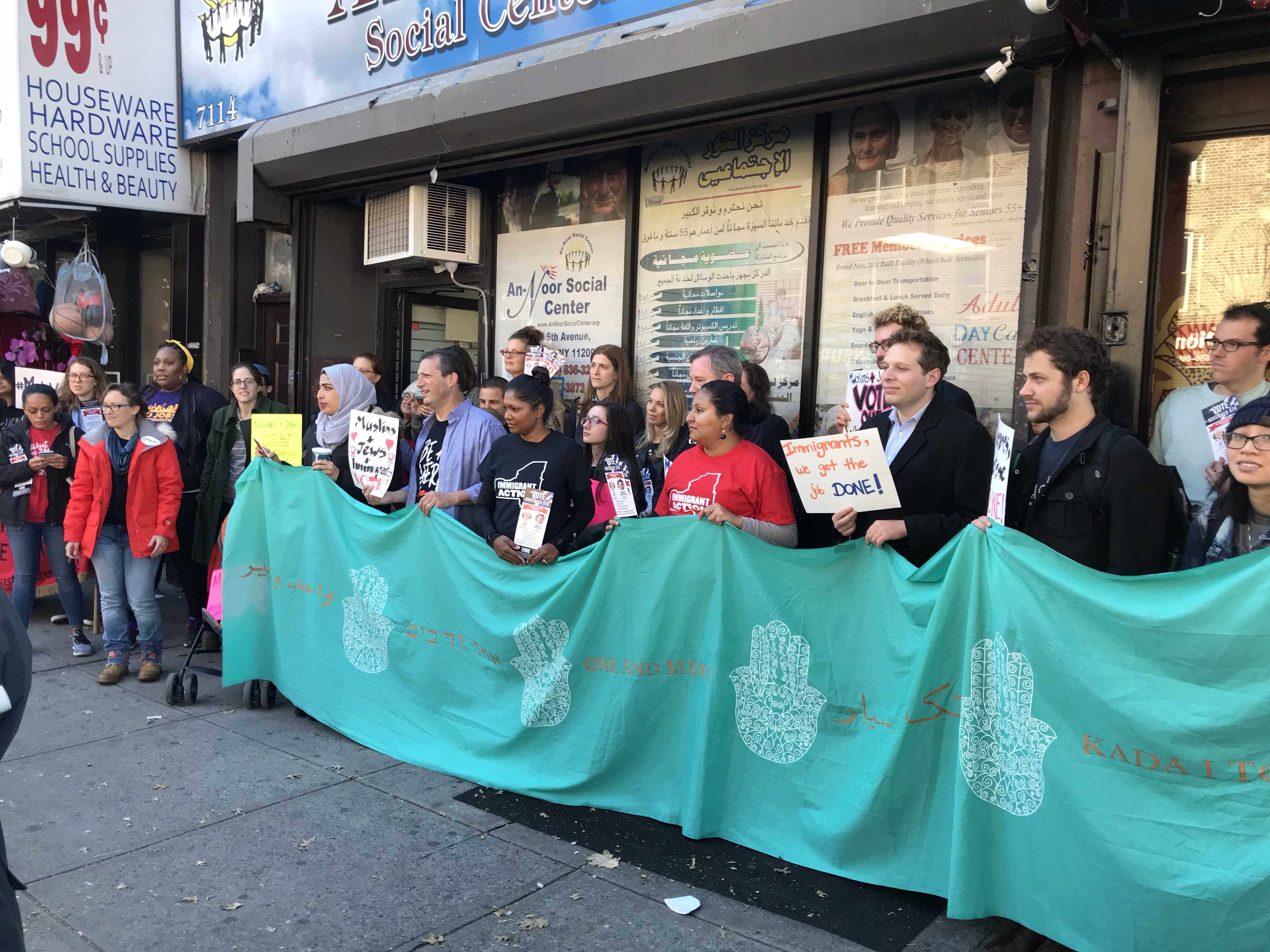
That may be because the Brooklyn Asian-American population, which makes up one-third of the voting population in the state Senate’s 22nd district according to Chiu, contains some of the most conservative Asian-Americans in New York. Among them, Golden has won points for opposing Mayor de Blasio’s proposal to eliminate the use of the Specialized High School Admissions Test as the determinant for who gets into the city’s most competitive public high schools.
The Asian-American community sees the de Blasio proposals as a personal attack that cuts to the heart of their own immigration journey to America, said Chiu, whose own parents emigrated to the U.S. to give their children a quality education. “When education is attacked, they’re attacking the very reason they’re in America. It’s very emotional and very psychological,” he said.
Both Gounardes and Golden have said they support keeping the use of SHSAT, recently fighting at a debate over who’s more supportive of keeping the test, but Chiu said he wasn’t impressed with the Asian-American outreach effort from either campaign. For one Bay Ridge resident, Ed Yoo, Golden’s attempt at outreach to the Chinese-American community resulted in him wondering why he received a mailer in English and Chinese, since he’s a Korean-American.
The effort to secure Democratic votes has drawn out neighborhood groups like Yalla Brooklyn (a political club started by El-Yateem to build on the momentum of his City Council candidacy) and statewide organizations like the New York State Immigrant Action Fund. The An-Noor Social Center was host to a buzzing and bustling hub of volunteers this past weekend, as phone bankers and street canvassers passed through throughout Saturday and Sunday. Ali said the MDCNY has 25 to 50 volunteers a day hitting the streets, and that many of them were newly registered voters or were encouraging their friends and family to register. Somia Elrowmeim, the co-president of Yalla, said she had registered 150 people and that she was seeing a different attitude in the community than in the past, one that connected local change to national change.
“After the Father K. campaign, people were disappointed because he didn’t win and some people don’t want to be part of any election with no Arab running for it,” she said. “But now I see a lot of people have realized how important it is to vote, that they need to vote to make the change to save their future, their children’s future, their family’s future. Every day we hear a new thing with Trump, separating families, attacking immigrants, public charge. How will we end it if we can’t make a change locally? If we want to make a change in the White House we have to change it here,” she said.
Murad Awawdeh, the political director at the NYSIAF, told Documented the group had set a weekend goal to knock on 30,000 doors between southern Brooklyn and Staten Island in an attempt to reach second and third-generation immigrants and low-income communities of color. And win or lose, Awawdeh said that immigrant organizers would continue to work in the neighborhood.
“We’re going to keep trying to build in this community, this is our community. We’ve been here, the Arab community has been thriving here for over 70 years and I think our power’s gonna be felt in this election,” he said.
